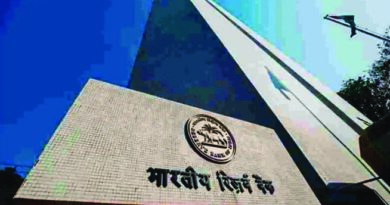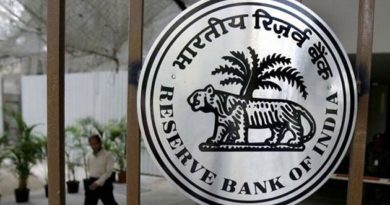Fetching Fugitive Offenders through Fugitive Economic Offenders Ordinance

It is often seen that people first indulged in looting and then refuse to submit to the jurisdiction of our legal system. No one has forgotten Nirav Modi, Mehul Choksy, Vijay Mallya. With an aim to catch and punish those who are accused of committing financial crimes in India and then fleeing from the country, Fugitive Economic Offenders Ordinance came into being in the year 2018. This Ordinance provide for measures to deter fugitive economic offenders from evading the process of law in India by staying outside the jurisdiction of Indian courts, to preserve the sanctity of the rule of law in India.
Who is a ‘fugitive economic offender’?
“Fugitive economic offender” means any individual against whom a warrant for arrest in relation to a Scheduled Offence has been issued by any Court in India, who—
(i) The person has an arrest warrant issued against him for any scheduled
offences amounting to over Rs.100 crores
(ii) Has left India so as to avoid criminal prosecution; or
(iii) Being abroad, refuses to return to India to face criminal prosecution.
Declaration of Fugitive Economic Offenders
- An application must be filed in a Special Court designated under the Prevention of Money-Laundering Act, 2002 to declare an individual as a ‘fugitive economic offender’.
- The application should include details of the properties to be confiscated and any information about the person’s location.
- The Special Court will then issue a notice to the individual, requiring them to appear at a specified place within six weeks from the date of the notice.
- If the person complies and presents themselves, the proceedings will be terminated.
- The Act also permits designated authorities to provisionally attach properties of the accused while the application is pending before the Special Court.
Once a person is declared an FEO, their properties can be confiscated and vested in the Central Government, free from all encumbrances. Furthermore, the person declared an FEO or any company associated with them may also be prohibited from filing or defending any civil claims.
Details of application
The application should contain—
1. Reasons for the belief that an individual is a fugitive economic offender
2. Any information available as to the whereabouts of the fugitive economic offender.
3. A list of properties or the value of such properties believed to be the proceeds of crime, including any such property outside India for which confiscation is sought.
4. A list of properties or benami property owned by the individual in India or abroad for which confiscation is sought.
5. A list of persons who may have an interest in any of the properties.
 Attachment of property
Attachment of property
(1)The Director or officer authorized by the Director may with the permission of the Special Court, attach any property mentioned in the application by an order in writing.
(2) The Director or authorized officer may by an order in writing, at any time prior to the filing of the application attach any property—
For which there is a reason to believe that the property is proceeds of crime, or is a property owned by an individual who is a fugitive economic offender. The Director or any other officer who provisionally attaches any property shall, within a period of thirty days from the date of such attachment, file an application before the Special Court.
(3) The attachment of any property shall continue for a period of one hundred and eighty days from the date of order of attachment or such other period as may be extended by the Special Court before the expiry of such period.
Power of Director and other Officials
The Director or any other officer shall have the same powers as are vested in a civil court under the Code of Civil Procedure, 1908 while trying a suit in respect of the following matters, namely:—
- Discovery and inspection.
- Enforcing the attendance of any person, including any officer of a reporting entity and examining him on oath.
- Compelling the production of records.
- Receiving evidence on affidavits.
- Issuing commissions for examination of witnesses and documents.
- Any other matter which may be prescribed.
Search and Seizure
The Director or any authorized officer on the basis of information in his possession, has reason to believe that any person may be declared as a fugitive economic offender, in possession of any proceeds of crime or in possession of any records which may relate to proceeds of crime or in possession of any property related to proceeds of crime, then, subject to any rules made in this behalf, he may authorize any officer subordinate to him to—
- Enter and search any building, place, vessel, vehicle or aircraft where he has reason to suspect that such records or proceeds of crime are kept.
- Break open the lock of any door, box, locker, safe, almirah or other receptacle for exercising the powers conferred to him where the keys thereof are not available.
- Seize any record or property found as a result of such search.
- Place marks of identification on such record or property, if required or make or cause to be made extracts or copies there from.
- Make a note or an inventory of such record or property.
- Examine on oath any person who is found to be in possession or control of any record or property, in respect of all matters relevant for the purposes of any investigation.
Where an authority, upon information obtained during survey, is satisfied that any evidence shall be or is likely to be concealed or tampered with, he may, for reasons to be recorded in writing, enter and search the building or place where such evidence is located and seize that evidence.
Search of persons
If an authority, authorized by the Central Government by order, has reason to believe that any person has secreted about his person or anything under his possession, ownership or control, any record or proceeds of crime which may be useful for or relevant to any proceedings, he may search that person and seize such record or property which may be useful for or relevant to any proceedings.
Where an authority is about to search any person, he shall take such person within twenty-four hours to the nearest Gazetted Officer, superior in rank to him, or a Magistrate.
The authority shall call upon two or more people to attend and witness before making the search and the search shall be made in the presence of such persons. The authority shall prepare a list of records or property seized during the search and obtains the signatures of the witnesses on the list. No female shall be searched by anyone except a female.
 Notice
Notice
Where an application has been duly filed, the Special Court shall issue a notice to an individual who is alleged to be a fugitive economic offender. The notice shall also be issued to any other person who has any interest in the property mentioned in the application.
As per notice, it is required for the individual to appear at a specified place and time not less than six weeks from the date of issue of such notice. Failure to appear at the specified place and time shall result in a declaration of the individual as a fugitive economic offender and confiscation of property. A notice shall be forwarded to such authority, as the Central Government may notify, for effecting service in a contracting State. The authority referred shall make efforts to serve the notice within a period of two weeks in such manner as may be prescribed.
A notice may also be served to the individual alleged to be a fugitive economic offender by electronic means to his electronic mail address submitted in connection with an application for allotment of Permanent Account Number or submitted in connection with an application for enrolment of the Aadhaar or any other electronic account as may be prescribed, belonging to the individual which is accessed by him over the internet, subject to the satisfaction of the Special Court that such account has been recently accessed by the individual and constitutes a reasonable method for communication of the notice to the individual.
Procedure for hearing application
If the individual to whom the notice has been issued appears in person at the place and time specified in the notice, the Special Court may terminate the proceedings. Where the individual to whom the notice has been issued fails to appear at the place and time specified in the notice, but enters appearance through counsel, the Special Court may in its discretion give a period of one week to file a reply to the application.
But if the individual to whom notice has been issued fails to enter appearance either in person or through counsel and the Special Court is satisfied that service of notice has been effected on such party or the notice could not be served in spite of best efforts because such individual has evaded service of notice, it may, after recording reasons in writing, proceed to hear the application. The Special Court may also give any person to whom notice has been issued a period of one week to file a reply to the application.
Declaration of fugitive economic offender
(1) After hearing the application, if the Special Court is satisfied that an individual is a fugitive economic offender, it may, by an order, declare the individual as a fugitive economic offender for reasons to be recorded in writing.
(2) On a declaration, the Special Court may order that any of the following properties stand confiscated—
- The proceeds of crime in India or abroad, whether or not such property is owned by the fugitive economic offender; and
- Any other property or benami property in India or abroad, owned by the fugitive economic offender.
(3) The confiscation order of the Special Court shall, to the extent possible, identify the properties in India or abroad that constitute proceeds of crime which are to be confiscated and in case such properties cannot be identified, quantify the value of the proceeds of crime.
(4) The confiscation order of the Special Court shall separately list any other property owned by the fugitive economic offender in India which is to be confiscated.
(5) Where the Special Court has made an order for confiscation of any property, and such property is in a contracting State, the Special Court may issue a letter of request to a Court or authority in the contracting State for execution of such order.
(6) Every letter of request to be transmitted to a contracting State in such form and manner as the Central Government may, by notification, specify in this behalf.
(7) The Special Court may, while making the confiscation order, exempt from confiscation any property which is a proceed of crime in which any other person, other than the fugitive economic offender, has an interest if it is satisfied that such interest was acquired bonafide and without knowledge of the fact that the property was proceeds of crime.
(8) All the rights and title in the confiscated property shall, from the date of the confiscation order, vest in the Central Government, free from all encumbrances.
(9) Where on the conclusion of the proceedings, the Special Court finds that the individual is not a fugitive economic offender, the Special Court shall order release of property or record attached or seized under this Ordinance to the person entitled to receive it.
(10) Where an order releasing the property has been made by the Special Court, the Director may withhold the release of any such property or record for a period of ninety days from the date of receipt of such order, if he is of the opinion that such property is relevant for the appeal proceedings under this Ordinance.
Supplementary application
Where at any time after the institution of the application, any other property is discovered or identified which constitutes proceeds of crime or is property owned by the fugitive economic offender liable to be confiscated under this Ordinance, the Director or officer authorized by the Director for the purposes of this section, may file a supplementary application in the Special Court seeking confiscation of such properties.
Power to disallow civil claims
On a declaration of an individual as a fugitive economic offender, any Court may disallow such individual from defending any civil claim. Any Court may disallow any company or limited liability partnership from defending any civil claim, if an individual filing the claim on behalf of the company or the limited liability partnership, or any promoter or key managerial personnel or majority shareholder of the company or an individual having a controlling interest has been declared as a fugitive economic offender.
Management of properties confiscated
The Central Government may, by order published in the Official Gazette, appoint as many of its officers, not below the rank of a Joint Secretary to the Government of India as it thinks fit, to perform the functions of an Administrator. The Administrator appointed shall receive and manage the property in relation to which an order has been made. He shall also take such measures, as the Central Government may direct, to dispose of the property which is vested in the Central Government, provided that the Central Government or the Administrator shall not dispose of any property for a period of ninety days from the date of the order.
Rule of evidence
- The burden of proof for establishing that an individual is a fugitive economic offender and a property is the proceeds of crime or any other property in which the individual alleged to be a fugitive economic offender has an interest, shall be on the Director or the person authorized by the Director to file the application.
- Where any person claims that any interest in any property was acquired bonafide and without knowledge of the fact that, such property constitutes proceeds of crime, the burden of proving such fact shall lie upon him.
Appeal
Every appeal under this section shall be preferred within a period of thirty days from the date of the judgment, provided that the High Court may entertain an appeal after the expiry of the period of thirty days, if it is satisfied that the appellant had sufficient cause for not preferring the appeal within the period of thirty days. No appeal shall be entertained after the expiry of the period of ninety days.
General rules
1. Bar of jurisdiction: – No civil court shall have jurisdiction to entertain any suit or proceeding in respect of any matter which the Special Court is empowered.
2. Protection of action taken in good faith:-No suit, prosecution or other legal proceeding shall lie against the Central Government or Presiding Officer of the Special Court or Director or any other authorized officer for anything which is in good faith done or intended to be done under this Ordinance.
3. Power to make rule:-The Central Government may, by notification in the Official Gazette, make rules for carrying out the provisions of this Ordinance.
4. Power to remove difficulties:-The Central Government may amend if any difficulty arises in giving effect to the provisions of this Act by order by publishing the same amendment in the Official Gazette.
Impact on Insolvency Resolution under the Code
The Ordinance provides that all the rights and title in the confiscated property shall, from the date of the confiscation order, vest in the Central Government, free from all encumbrances. Such properties are subject to attachment including provisional attachment prior to adjudication of a person as an FEO.
Hence, the Ordinance may have a significant adverse effect on a corporate insolvency process where properties of the corporate debtor are attached or confiscated as proceeds of crime or benami properties. It may restrict the ability of financial creditors to realize their dues from such properties.
To take care of this issue there is an inbuild procedure in the ordinance i.e. Ordinance provides for exemption from confiscation of such proceeds of crime, in which any other person other than the FEO has an interest, if it is satisfied that such interest was acquired bona fide and without knowledge of the fact that the property was proceeds of crime.
To avoid such inadvertent consequence of restricting the ability of banks to recover their dues from the companies of defaulting promoters, the exemption provided in the Ordinance must necessarily be exercised to assist the resolution process and allow the lenders to maximize their recovery. The valiant objections of the Ordinance of confiscation of assets will be defeated if a mechanism for protecting legitimate rights of lenders in relation to assets of FEOs is not put in place rigorously. Same to be applied for sale under the Securitization and Reconstruction of Financial Assets and Enforcement of Securities Interest Act, 2002 (SARFAESI). The attachment or confiscation off properties of FEO would otherwise have penalizing effect on banks or Fis.
In this context, on one hand the Ordinance aims to assist banks/FIs in recovery of financial debts by confiscation and disposal of properties on the other hand the administrator appointed under the Ordinance should have the potential of impacting the corporate insolvency resolution process under the Insolvency Code.
Conclusion
The law cannot force any offender to return. It is more dependent on extradition processes. But it is aimed at being so harsh that it convinces alleged offenders to return to India, otherwise the properties would be confiscated. It ensures that the investigation does not mean assets that might be leveraged by a bank are not simply frozen. If it is required, the properties can be utilized for adjustment of outstanding dues by the processes of confiscation and sale as per provision of Ordinance.




